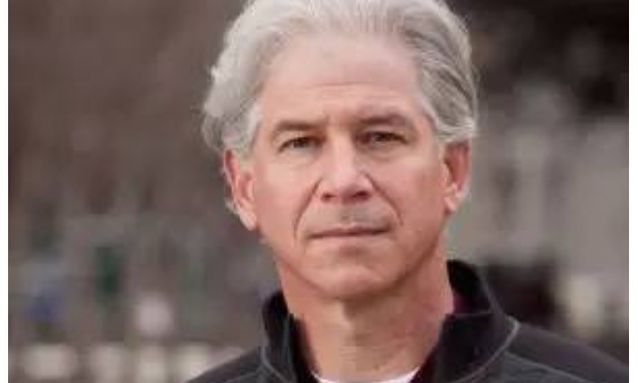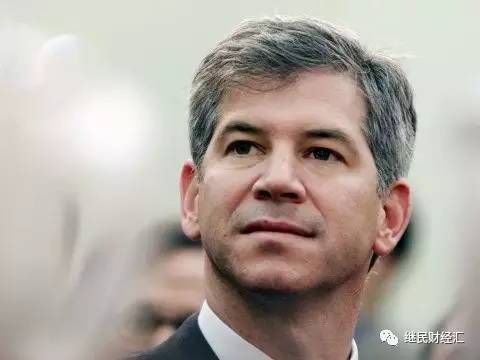
安然前CFO最新公开演讲:当下很多公司在用安然玩过的套路,甚至更为激进,不要以规则作为挡箭牌。公众号:继民财经汇( jimincaijing)
Andrew Fastow 是安然大案的核心人物之一,他于1988 年3月至2001年10月担任安然的CFO;安然事件爆发后,他面临10年有期徒刑的审判;Fastow 于2004年认罪,承认通过不正当交易和收取回扣的方式,从安然不当获得数百万美元财富;后来由于和联邦检察官合作,作为指控Lay 和Skilling 的污点证人,从而减刑至6年,他于2006年9月入狱,2011年出狱。
在为证券欺诈服刑后,Fastow现在讲教商业道德课程。 他还为卖空者提供咨询服务,他协助卖空机构识别上市公司财务信息中的可疑线索,尤其是那些公司的财务数据在表面上看可能符合公认会计准则,但实质上是误导投资者。
他上周在纽约的Marriott Marquis举行的专业责任承保协会2017年D&O(高管责任险)研讨会上发言时指出:一些公司今天可能不知不觉地跟随安然的脚步。( some companies today may be unknowingly following in Enron’s footsteps)
他说:“对于那些很容易就可以证明不道德的,实质上误导的行为,我们太习惯于说:'我已经遵守了规则,这是并不违反规则,并以此为借口。”; 他说。 “由于会计准则中存在灰色地带,它给公司首席财务官或公司董事们很大的操纵空间。 但是,如果你能证明这些交易是正确的,因为会计规则允许你这样做; 那么,什么时候你又能够告诉自己这么做是不行的,即使在会计准则上没有问题? 这就是我所陷入的陷阱 。“It’s easy to justify unethical, materially misleading behavior by saying, ‘I’m following the rules,'” he said. “Since the rules are very gray in accounting, it gives you a lot of room to maneuver as a CFO or director to get to the answer you want. But if you can justify these transactions because there are rules that allow you to do it, when is it not okay to justify a transaction where the rules allow it? That was a trap I fell into.”
作为安然的CFO, 他因为相关交易而获得了年度CFO 的称号; 然而,也是因为同样的交易,他也获得了通往监狱的通行证;这看来是天大的讽刺。他说。 “为何同一个商业交易安排,一方面让我获得年度首席财务官的光荣称号,而又同时把我送进了联邦监狱呢?让我变成美国历史上的最大欺诈案呢? 都是同一个商业交易呀。
“I got both of these for doing the same deals,” he said. “How is it possible to be CFO of the year and go to federal prison doing the same deals? How is it possible to be CFO of the year and commit the greatest fraud in corporate American history doing the same deals?”
“如果我可以总结一个词,我会使用”漏洞“ 这个词,”他说。 “不一定非要违反规则(会计准则和法规),而是通过找到漏洞,通过合理化, 公司同样可以找到从A点到B点的路径。 很多时候,高管和董事没有看到他们所作出决定的问题 - 他们只是倾向于用“合理化”的方式来自我安慰。“If I could sum it up in one word, I would use the word ‘loophole,'” he said. “Companies who underwrite can find a way to get from point A to point B by not necessarily breaking the rules, but by finding loopholes, by rationalizing. Very often, executives and directors don’t see the problem with their decisions – theyrationalize .”
“最后,我想,”反正这些商业交易已经得到各方(比如审计师和律师等等)同意和批准。 我不必再多考虑,“他说。 “这是很多公司高管和董事的想法。 当下,许多公司的表外融资和结构性融资和2000年那时候一样激进,甚至更激进。只是现在人们不再谈论它,反而是给予公开奖励。“ Finally, I thought, ‘[The deals have] been approved. I don’t have to think about it,'” he said. “That’s how a lot of officers and directors think. The off-balance sheet financing and structured finance going on today is as aggressive, if not more aggressive , than what was going on in the year 2000. People just don’t talk about it and give public awards for it anymore.”
“当我在安然,我从来没有意识到我可能犯欺诈,”他说。 “我以为我在做什么是正确的事情。 我想到的是每个人手里都规则手册。 谁能够最好地利用这些规则并找到漏洞获得优势。 他们叫我CFO,但我的职位应该是'首席漏洞官',这就是我做的。 每天。 寻找方法来绕过规则的意图或目的。“When I was at Enron, it never even dawned upon me that I might be committing fraud,” he said. “I thought that what I was doing was the right thing. The way I thought about it was everybody gets the rulebooks. Whoever can best exploit those rules and find the loophole gets an advantage. They called me CFO, but my job title should have been ‘chief loophole officer.’ That’s all I did. Everyday. Looking for ways to get around the intent or purpose of the rules.”
他补充说,重要的是,企业高管不仅要问自己,他们是否遵守规则,更要问自己,你们这么搞合适(妥当/正确)吗?,而不是一味的紧盯住规则的表面意思。He added that it is important for business executives to not only ask themselves if they are following the rules, but to also ask themselves if what they are doing is right in spite of the rules.
“企业高管和董事倾向于将这两个问题混合在一起,并自认为他们是在思考同样的事情,”他说。 “他们认为,”如果我的律师(替罪羊,小编注)签字,我的会计师(又一个替罪羊,小编注)签署了它,那么一切就没问题了。“在美国公司,当一切顺利时,人们只提出一个问题:你是否遵守规则 (主要指会计准则)? 然而,当出现问题时,SEC和原告律师进来问一个不同的问题:哥们,你这么整合适吗 ?“Business executives, directors and officers tend to conflate those two questions and think they’re asking the same thing,” he said. “They think, ‘If my attorney is signing off on it, and if my accountant is signing off on it, then it’s okay.’ In corporate America, when everything is going well, people only ask one question: Are you following the rules ? When something goes wrong, however, the SEC and plaintiff attorneys come in and ask a different question: Is it right?”

“当公司管理层做出错误决定的时候,公司里人们通常知道有问题或感到不爽,但他们不举手,不说出来。 “1999年,在我所出其中一个最有争议的结构化融资交易之后,安然公司内部的紧张气氛出现了大幅上升。 我认为这笔交易是天才之作,董事会主席,首席执行官和其他懂事也这么认为。 安然公司前150名高管都没有举手提出反对,没有反对这笔交易,但是他们使用一个匿名软件来对抗安然公司的电子邮件数据库,并且显示紧张程度几乎与安然宣布破产当天一样糟糕。 这个公司内部气氛紧张指数其实就是公司董事会所应该要看到的。 正是这个交易,最终导致美国证券交易委员会启动对安然的调查。所以,这一切起诉两年前就有信号。“People usually know when there are problems or feel uncomfortable when management is making bad decisions but don’t raise their hands,” he said. “There was a big spike in tension levels at Enron in 1999 following one of the most controversial structured finance deals I did. I thought this deal was genius and so did the Chairman, CEO and directors. None of the top 150 executives at Enron raised their hands and objected to the deal, but they ran this anonymous software against Enron’s database of emails, and it showed tension levels appeared almost as bad as on the day Enron declared bankruptcy. The data showed exactly what the board needed to see. This is the deal that eventually led to the SEC investigation, and the signals were there two years earlier.”
|


